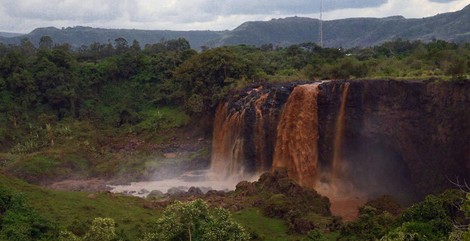Your podcast discovery platform
Curious minds select the most fascinating podcasts from around the world. Discover hand-piqd audio recommendations on your favorite topics.

piqer for: Global finds
Ciku Kimeria is a Kenyan author "Of goats and poisoned oranges" - (https://www.amazon.com/goats-poisoned-oranges-Ciku-Kimeria-ebook/dp/B00HBBWPI6), development consultant, adventurer and travel blogger (www.thekenyanexplorer.com). She writes both fiction and non-fiction focusing on African stories that need telling. She has worked on diverse pieces for various international and local publications including Quartz, Ozy, The East African etc. She has travelled to 45 countries – 16 of them in Africa. 153 countries to go and 63 territories!
"Of goats and poisoned oranges" has been extremely well received in Kenya and beyond. It tells the story of a Kenyan middle aged power couple and their complicated marriage. The novel explores issues of greed, revenge, betrayal and murder. It runs from the 1960s to 2013. It has been described as “Wicked, funny, poignant, wacky, human, a big ball of fun and danger”, “A unique and captivating book”, “Fun and intriguing”, “Impossible to put down once you start reading.”
She recently moved to Dakar, Senegal from Kenya to work on her second novel. She also works at as the Africa Communication Manager at a leading global strategy consulting firm.
She holds a B.S. in Management Science from MIT with minors in Urban Planning and International development studies.
The World's Longest River Is At Risk Of Destruction
The Nile — the world's longest river and one that people have marveled over for millennia — is knocking on death's doors. Growing populations, pollution, climate change and attempts to dam the river from the source are all factors contributing to the Nile's decline. At the source in Ethiopia, rains have become unpredictable and inconsistent, either filling the Nile with over a billion tons of sediment or being too light to fill the river.
Population growth has fuelled this phenomenon, as expanding families fell trees to free up more space and provide construction materials. Monster floods have also become much more common.
Further complicating the situation is the fact that the Ethiopian government is planning to build Africa's largest dam on the Nile on its border with Sudan, which will drastically reduce the water flowing into the Nile further downstream.
But to downstream Egypt, which is mostly desert, receives little rain, and consequently relies on the river for more than 95% of its water, the possibility that [the dam] might cut the Nile’s flow is perceived as an existential crisis.
The Blue and the White Nile meet in Khartoum, Sudan, but immediately the water quality worsens once it is filled with sewage from the city.
The places the Nile flows through today have greatly changed over the decades, with growing populations putting a strain on the river and its water.
Egypt’s numbers have more than quadrupled since 1960; Ethiopia is adding roughly 2.5 million new people a year. The basin’s total population is on track to double to 500 million by 2050.
The words best reflecting the strain the river is under come from an engineer and part-time fisherman who talks of the situation that is not sustainable.
“We’ve always treated the river badly, we’ve always assumed it was big enough,” said Youssef Abugroun, an engineer and part-time fisherman, whose regular evening sessions now net him around 10% of his catch a decade ago. “But maybe we’re just too many for that now.”
Stay up to date – with a newsletter from your channel on Global finds.
